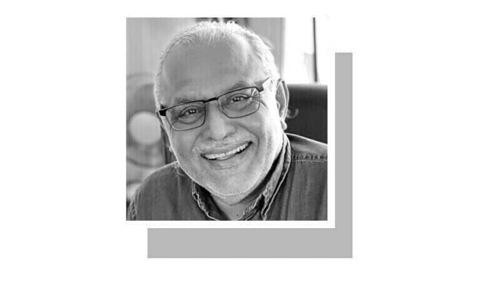TWO issues we lament very frequently are the dumbing down of public discourse and institutions overstepping their mandate. Interestingly, most of us are equally culpable of routinely asking a poet to recite an ‘easy-to-understand’ couplet and calling on state institutions to arbitrate on issues clearly outside their ambit and competence, such as asking the higher judiciary to fix prices for anything from sugar to natural gas.
Since much has already been written about the dragging of the judiciary into matters outside its remit, I intended to limit the focus of this piece to the ‘dumb’ bit, but despite or because of it, the higher judiciary gets mentioned.
Even those of us whose knowledge of the subcontinent’s history is limited to Pakistan Studies know that the founder of the nation, Mohammad Ali Jinnah, had a special place in his heart for the Raja Sahibs of Mahmudabad. This was caused as much by his long association with the family as by their fondness for literature and erudition, which seem to pass through the scions of Mahmudabad like their title.
When the current Mahmudabad brothers, Ali and Amir Khan’s great-grandfather, Sir Muhammad Amir Ali Khan, passed in 1931, the family’s association with the Muslim League was assumed by his son and successor to the largest landholding of Awadh, Amir Ahmad Khan. Ali Khan’s father, Sulaiman Mian, was well versed in Arabic, Persian, Italian, English, Urdu and Awadhi, and was a connoisseur of elegiac Shia poetry and patron of Muharram majalis, besides being a Cambridge-educated wrangler interested in astronomy.
The love of language is an acquired taste.
The genealogy and generational affinity with scholarly pursuits of the Mahmudabad family was necessitated to establish the shock Ali Khan, an associate professor heading the political science department at Ashoka University in Haryana, must have felt on being reprimanded by none less than the Indian supreme court for using complex language susceptible to misinterpretation in his social media posts. This to a man who earned a PhD in history from the University of Cambridge on Rhetorics and Spaces of Belonging Among North Indian Muslims, 1850 to 1950.
Ali Khan was arrested for his social media posts after Operation Sindoor on complaints by a women’s commission head and a BJP youth leader. The apex court granted him bail with a caution to keep it simple. One would like to ask the honourable justices what they found ‘complex’ and open to misinterpretation in words like “mindlessly advocating for war” or, while referring to two women officers who held press briefings during the skirmishes, “optics must translate to reality on the ground, otherwise it’s just hypocrisy”.
In the run-up to the monsoons, also known as the mango madness season in the subcontinent, one would respectfully ask their lordships if they would have the professor dumb it down to the nursery reader baba aaya, aam laya (father came, brought mangoes) level.
Without getting into the unending technical debate of what comes first, let us stick to a compromise that the relation between language and thought is bidirectional: each shapes and impacts the other. Deep, systematic thinking aimed at understanding an issue from multiple angles is inconceivable without the requisite vocabulary and diction. Transmitting it via various communication channels to expand and enrich the discourse poses the additional challenge of calibrating the language.
The love of language is an acquired taste, indispensable to enjoying works by undisputed geniuses in their respective field, whether it be science, philosophy, literature, criticism or specialised disciplines such as economics, political science, etc. Before giving up on Ghalib, Bedil, or Shakespeare, let us give the good old dictionary a chance. Most, if not all, etymological challenges are resolved by reference to the most basic of dictionaries. Forget the 22-volume tome by the Urdu Dictionary Board, or Farhang-i-Asifya — a humble Feroz-ul-Lughat should do for most Urdu needs. This is one area where the old-fashioned, printed version may still have an edge over the ease of the digital variety. A hard copy entails leafing through and going up and down the page; in the process one comes across at least half a dozen new words.
We started with a common grouse; let us end with an oft-asked question: ‘If you were to take only one book to an uninhabited island, which one would you choose?’ Even if one could cheat by including multi-volume epics, I would still choose a dictionary, for every word opens up a new world. To think alike and talk alike could lead to extreme behaviour, besides monotony; maybe it is time for some abstraction, not to be confused with the absurdity of calls to ‘keep it simple’.
The writer is a poet. His latest publication is a collection of satire essays titled Rindana.
Published in Dawn, June 17th, 2025










































